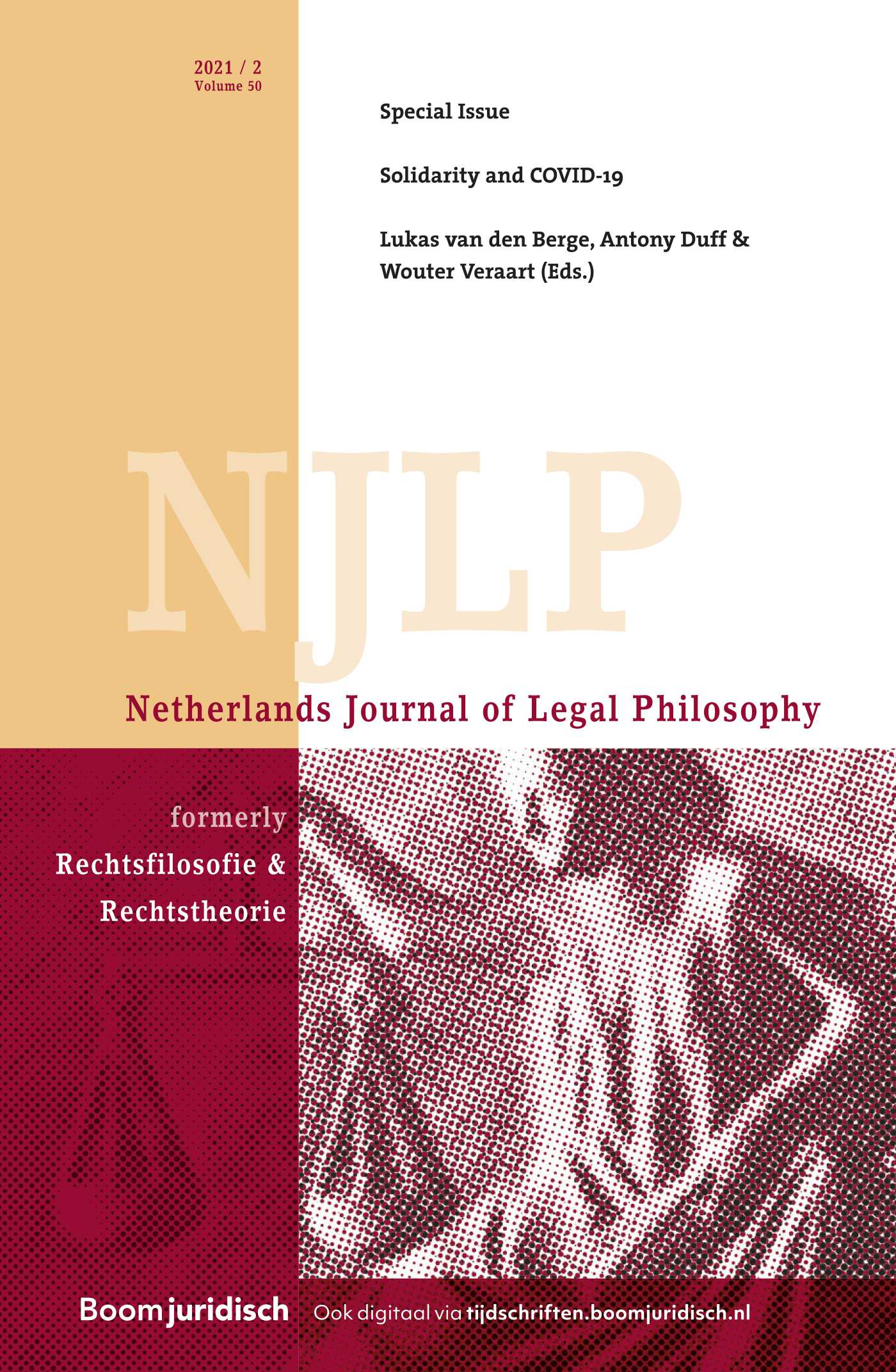|
This article investigates and classifies the different meanings of the term sovereignty. What exactly do we try to convey when using the words “sovereign” or “sovereignty”? I will argue that, when saying that X is sovereign, we can mean five different things: it can mean that X holds the capacity to force everyone into obedience, that X makes the laws, that the legal and political order is created by X, that X holds the competence to alter the basic norms of our legal and political order, or that X is independently active on the international stage. These different usages of the term are of course related, but they are distinct and cannot be fully reduced to one another. |


Netherlands Journal of Legal Philosophy
Meer op het gebied van Algemeen, Open Access
Over dit tijdschriftMeld u zich hier aan voor de attendering op dit tijdschrift zodat u direct een mail ontvangt als er een nieuw digitaal nummer is verschenen en u de artikelen online kunt lezen.
| Opinion |
|
| Trefwoorden | Geert Wilders, hate speech, freedom of opinion, District Court of The Hague, conviction |
| Auteurs | Jogchum Vrielink |
| Auteursinformatie |
| Redactioneel |
|
| Auteurs | Raf Geenens en Nora Timmermans |
| Auteursinformatie |
| Artikel |
|
| Trefwoorden | political sovereignty, power, legislative sovereignty, constitutive power, external sovereignty |
| Auteurs | Raf Geenens |
| SamenvattingAuteursinformatie |
| Artikel |
|
| Trefwoorden | sovereignty, constitutional law, positivism, constructivism, common law |
| Auteurs | Pavlos Eleftheriadis |
| SamenvattingAuteursinformatie |
|
Legal and sociological theories of sovereignty disagree about the role of legal and social matters in grounding state power. This paper defends a constructivist view, according to which the constitution is a judgment of practical reason. The paper argues that a constitution sets out a comprehensive institutional architecture of social life in terms of principles and official roles that are necessary for any legitimate scheme of social cooperation to exist. It follows that legal and sociological theories of sovereignty capture only part of the truth of sovereignty. Legal reasoning engages with political power, but it is not determined by it. There is no causal chain between power and validity, as suggested by the legal positivists. The relation between power and law is interpretive, not causal. It follows that the circularity of law and the constitution, namely the fact that the law makes the constitution and the constitution makes the law, is not a vicious circle. It is part of an ordinary process of deliberation. |
| Artikel |
|
| Trefwoorden | sovereignty, state, Léon Duguit, European Union, Eurozone |
| Auteurs | Martin Loughlin |
| SamenvattingAuteursinformatie |
|
This article presents an account of sovereignty as a concept that signifies in jural terms the nature and quality of political relations within the modern state. It argues, first, that sovereignty is a politico-legal concept that expresses the autonomous nature of the state’s political power and its specific mode of operation in the form of law and, secondly, that many political scientists and lawyers present a skewed account by confusing sovereignty with governmental competence. After clarifying its meaning, the significance of contemporary governmental change is explained as one that, in certain respects, involves an erosion of sovereignty. |
| Artikel |
|
| Trefwoorden | national identity, constitutional identity, EU law, constitutional courts, Court of Justice |
| Auteurs | Elke Cloots |
| SamenvattingAuteursinformatie |
|
This article challenges the assumption, widespread in European constitutional discourse, that ‘national identity’ and ‘constitutional identity’ can be used interchangeably. First, this essay demonstrates that the conflation of the two terms lacks grounding in a sound theory of legal interpretation. Second, it submits that the requirements of respect for national and constitutional identity, as articulated in the EU Treaty and in the case law of certain constitutional courts, respectively, rest on different normative foundations: fundamental principles of political morality versus a claim to State sovereignty. Third, it is argued that the Treaty-makers had good reasons for writing into the EU Treaty a requirement of respect for the Member States’ national identities rather than the States’ sovereignty, or their constitutional identity. |
| Artikel |
|
| Trefwoorden | sub-state nationalism, referendums, sovereignty, deliberative democracy, Scottish referendum |
| Auteurs | Stephen Tierney |
| SamenvattingAuteursinformatie |
|
This article uses the rise of referendum democracy to highlight the tenacity of modern nationalism in Western Europe. The proliferation of direct democracy around the world raises important questions about the health of representative democracy. The paper offers a theoretical re-evaluation of the role of the referendum, using the 2014 referendum on Scottish independence to challenge some of the traditional democratic criticisms of popular democracy. The final part of the paper addresses the specific application of referendums in the context of sub-state nationalism, addressing what might be called `the demos question'. This question was addressed by the Supreme Court in Canada in the Quebec Secession Reference but has also been brought to the fore by the Scottish reference and the unresolved issue of self-determination in Catalonia. |

 Aflevering 3
Aflevering 3